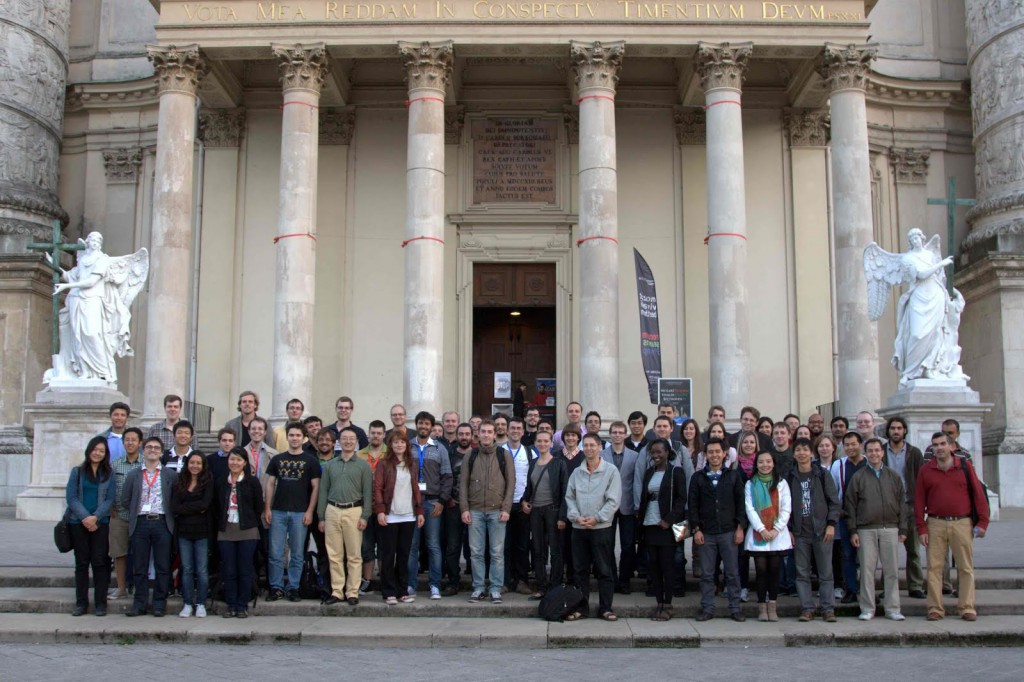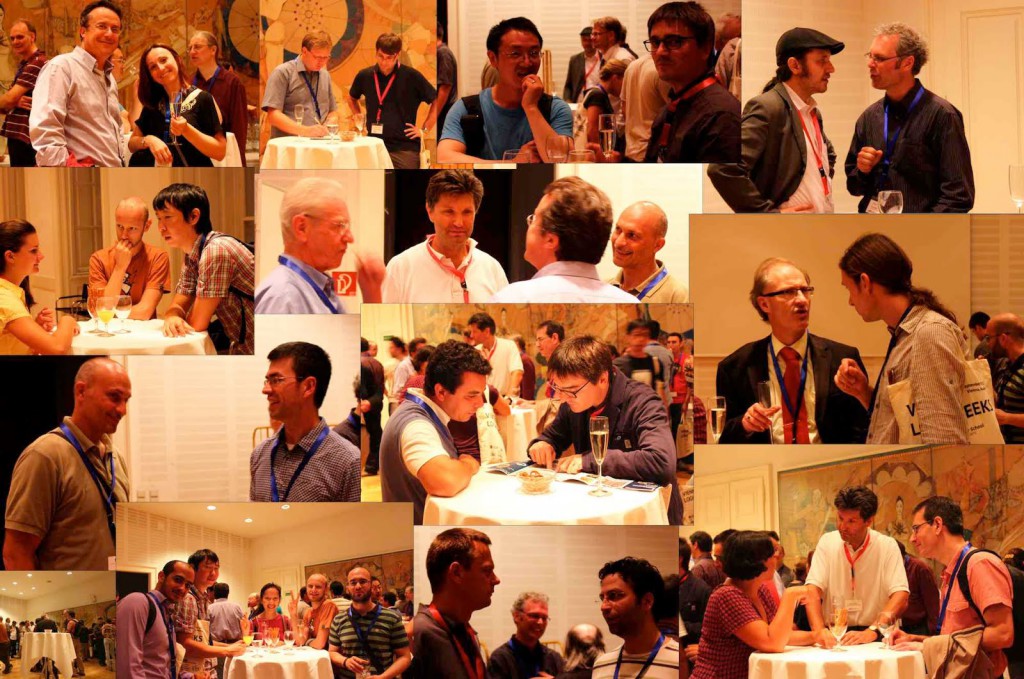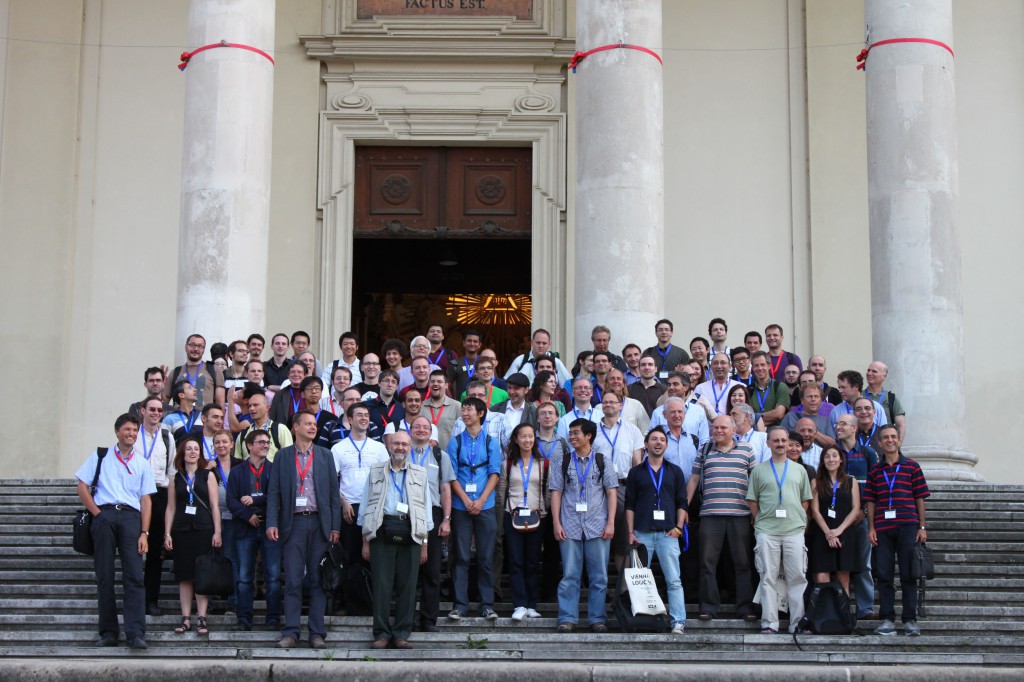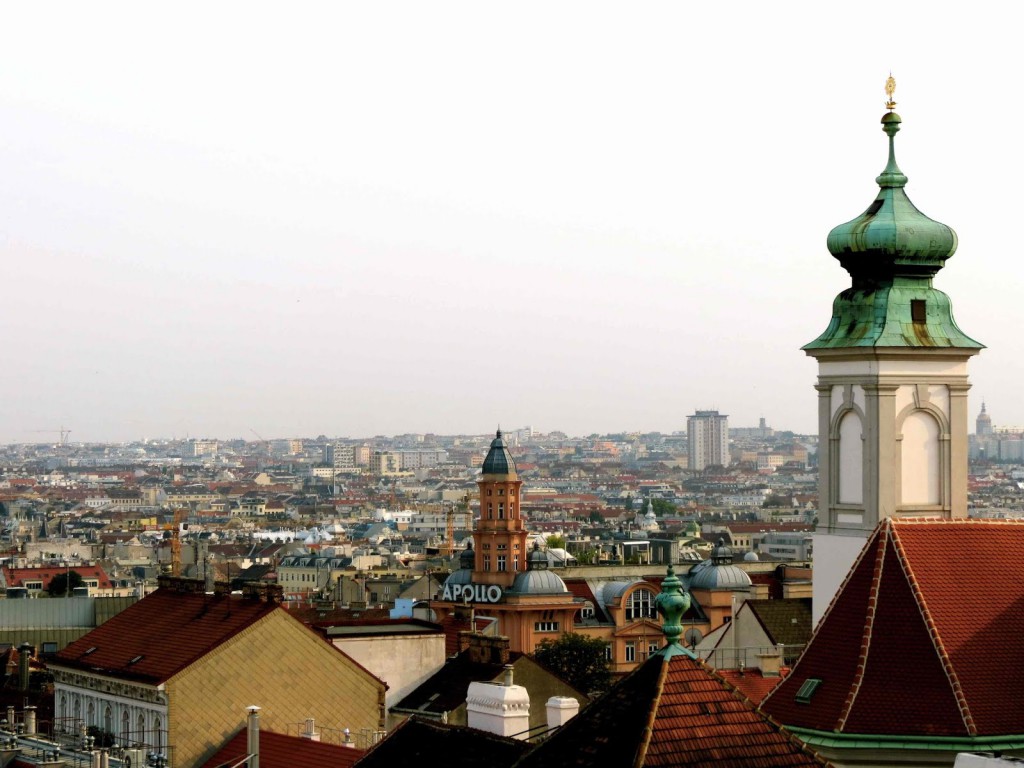By
Majed Ayyad
University of Trento
Elena Botoeva
Free University of Bozen-Bolzano
Cristina Civili
Sapienza University of Rome
Ario Santoso
Free University of Bozen-Bolzano
We are greatful to Thomas Krennwallner and Alessandra Mileo for valuable comments.
The 8th Reasoning Web Summer School (RW-SS) was held in Vienna, Austria, from September 03 to September 08, 2012. Following this event, the RR 2012 Doctoral Consortium (RR-DC) took place as part of the 6th International Conference on Web Reasoning and Rule Systems (RR) held from September 10 to September 12. Both events were organized by Thomas Eiter and Thomas Krennwallner under the umbrella of the Vienna Logic Weeks 2012, which also included other important academic events from logic-related areas: the 4th International Conference on Computational Models of Argument, September 10-12, and the Datalog 2.0 Workshop, September 11-13. These events were possible thanks to various sponsors, including the Vienna Center for Logic and Algorithms (VCLA), the Association for Logic Programming (ALP), the Artificial Intelligence Journal (AIJ), and many others. All the events were hosted by the Vienna University of Technology (TU Vienna) and took place in the main building of the university. The location was well served by public transportation and adequate to host the events.
The application process for both RW-SS and RR-DC were managed through EasyChair, as for regular submissions for RR. Students that wanted to participate to the summer school were asked to prepare an application containing information such as motivation for participation, summary of profile, willingness to present a poster, etc. Those students who wanted to participate to the RR-DC were required to submit their PhD research summary, and a statement of interest. Each application for the Doctoral Consortium was reviewed by three experienced researchers, and the reviews, which gave the students valuable feedback about their work, were accessible through the EasyChair Website. In total, there were 10 submissions, 5 of which got accepted for publication in the conference proceedings, 4 accepted as posters, and 1 submission was rejected.
The RW-SS was attended by roughly 60 students from approximately 40 different institutions in Europe and the USA. Participation of many students was possible thanks to travelling grants provided by the organizers: for non-US students the grant partially covered the registration and/or accommodation fees of the RW-SS, while US-students have been awarded a larger amount to cover their travelling expenses.
RW-SS 2012 covered a wide spectrum of topics centered around knowledge representation, reasoning and querying in the Semantic Web, ranging from more theoretical to practise-oriented ones, which gave students and lecturers the opportunity to come across several topics of interest. The presenters were also encouraging the audience to interact and ask questions. The following lectures have been taught during the school:
- Reasoning and Query Answering in Description Logics, by Magdalena Ortiz and Mantas Šimkus;
- Datalog and Its Extensions for Semantic Web Databases, by Georg Gottlob, Giorgio Orsi, Andreas Pieris and Mantas Šimkus;
- Semantic Wikis: Approaches, Applications, and Perspectives, by François Bry, Sebastian Schaffert, Denny Vrandecic and Klara Weiand;
- Federation and Navigation in SPARQL 1.1, by Marcelo Arenas, Jorge Pérez;
- Reasoning with Uncertain and Inconsistent Ontologies on the Semantic Web, by Guilin Qi, Jianfeng Du;
- Linked Data Stream Processing, by Manfred Hauswirth, Danh Le Phuoc and Josiane Xavier Parreira;
- Data Models and Query Languages for Linked Geospatial Data, by Manolis Koubarakis, Kostis Kyzirakos, Nikolaou Charalampos, Manos Karpathiotakis, Babis Nikolaou and Michael Sioutis;
- Reasoning and Ontologies in Data Extraction Sergio Flesca, Tim Furche and Ermelinda Oro;
- OWL 2 Profiles: An Introduction to Lightweight Ontology Languages, by Markus Krötzsch;
- Argumentation and the Web, by Francesca Toni.
The slides presented during the lectures are available online and can be found at http://www.kr.tuwien.ac.at/events/rw2012/Lecturers.html.
The program of the school also included a poster session held in the second day. Participants prepared posters on various topics, some of which are available online at http://www.kr.tuwien.ac.at/events/rw2012/Participants.html. As usual, the poster session let the students present their ongoing research and made it possible to stimulate fruitful discussions among the school participants. It was also a good chance for students to meet the senior researchers directly. To make the situation more relax and comfortable, the session was made in line with the afternoon coffee break where one could enjoy some snack and coffee while having a scientific discussion.
As for the social program of the school, in the fourth day of the school there was a common photo session in front of the Karlskirche:
Reasoning Web Summer School participants in front of the Karlskirche.
(Copyright © 2012 Cristina Feier)
Right after the group photo session, all the school participants had a social dinner at a traditional Viennese place Heuriger Werner Welser, where one could enjoy local young wine and a buffet of typical Austrian dishes, including vegetarian choices. It was a nice place for the school participants to meet in an informal environment.
Concerning the RR Doctoral Consortium, there were further grants for students participating to the RR-DC, which was enough to completely cover the student registration fee. Officially, the program of the RR-DC enlisted a poster presentation, a poster session and a mentoring lunch. At the mentoring lunch, held in mensa of Vienna University of Technology, each student was assigned to one of 4 experienced researchers (Diego Calvanese, François Bry, Wolfgang Faber, and Sebastian Rudolph) that are active in the area of Web Reasoning and Rule Systems. In order to foster not only general discussion but also more specific pointers to a particular field of research, the mentor assignment was done based on their technical interests and research background. Additionally, the students were actually asked to send some questions before the session. Besides those official 4 mentors, Alessandra Mileo and Tomi Janhunen contributed to the discussion as additional mentors. In every group, there were going interesting discussions, both technical and non-technical. Non-technical discussions concerned questions such as how to choose a research topic, whether or not one should pursue academic career and so on. Around 16 students participated to the lunch.
In the RR Doctoral Consortium poster session, 6 posters have been presented. The session was made in the joint coffee break between the RR Conference and Datalog 2.0 workshop participants. The discussion went on for the whole session. Before the poster sessions, some of the students got a chance to give a 15 minutes presentation inside the conference session in the first day of conference and the rest of the students got 5 minutes to shortly present their PhD proposal right before the poster session.
The social program of RR-DC included a reception at the Vienna University of Technology on Sunday evening. Before the social dinner, all of the RR Conference participants had a group picture in front of the Karlskirche. The social dinner took place at the Restaurant Settimo Cielo located in the very center of Vienna, where from a rooftop terrace the participants could enjoy a view on the city. It was a cozy place to socialize with other researchers.
Snapshots from the RR Conference Welcome Reception.
(Copyright © 2012 Minh Dao-Tran and Cristina Feier)
RR Conference participants in front of the Karlskirche.
(Copyright © 2012 Minh Dao-Tran)
View from the rooftop terrace of the Restaurant Settimo Cielo.
(Copyright © 2012 Alessandra Mileo)
To conclude, collocating the RW summer school and the RR conference gives students a chance to easily attend both events. It is beneficial for students as the acquired knowledge during the school helps understanding the talks at the conference. Moreover, introducing a doctoral consortium to the RR conference allows students working in this area to present their research work in a friendly environment. This combination provides the student a facility to meet and discuss directly with the prominent researchers.
The 9th edition of the Reasoning Web Summer School as well as the 7th edition of the Web Reasoning and Rule Systems Conference, will be held at the University of Mannheim, Germany in the second half of June, 2013. For more further information, visit http://rr2013.uni-mannheim.de/. We are looking forward to meeting you there!




